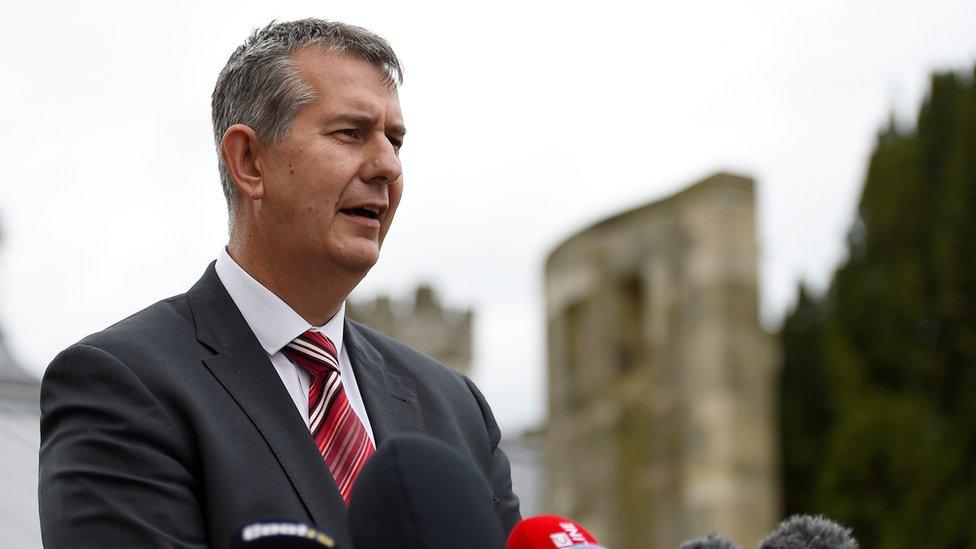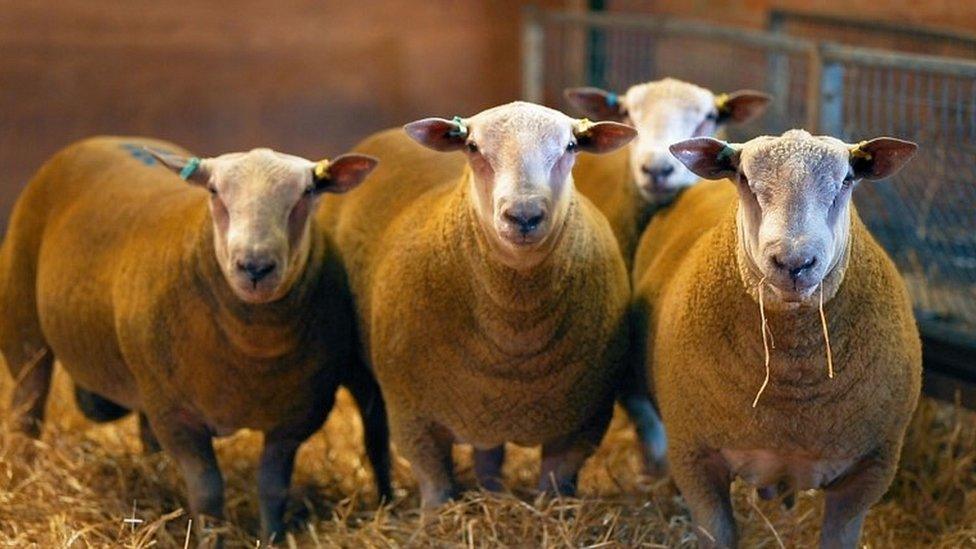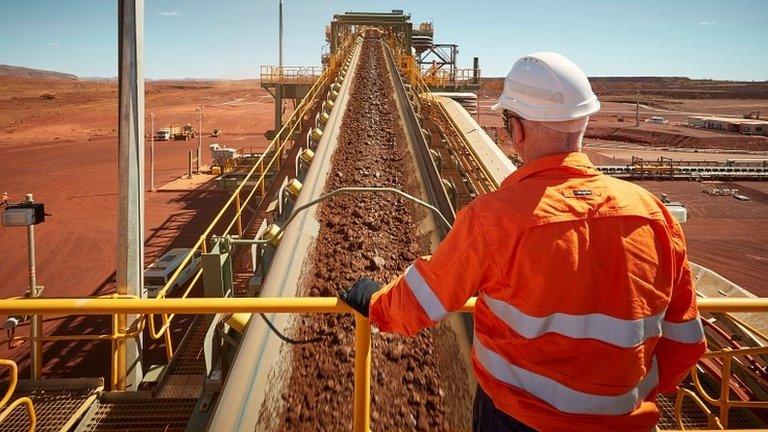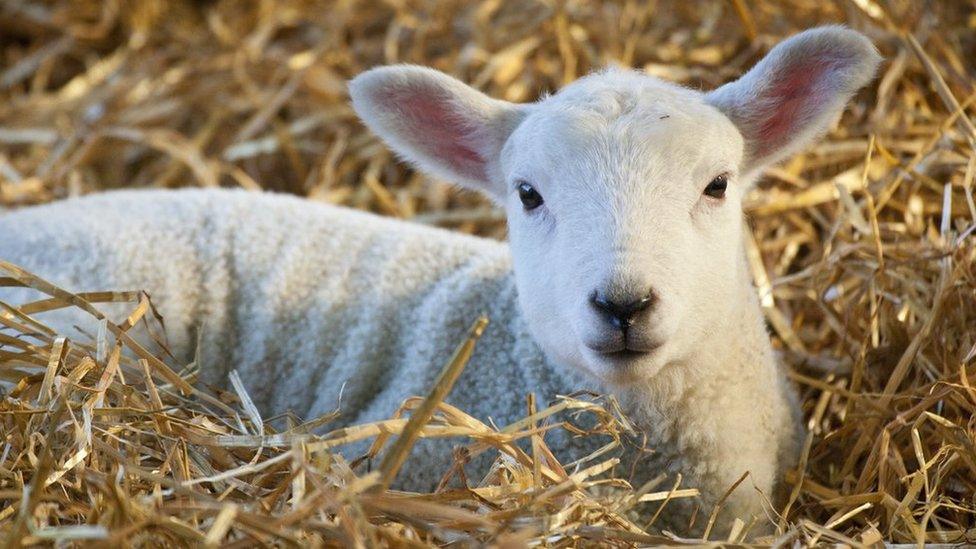Australia trade deal: Edwin Poots 'strongly opposes' zero tariff deal
- Published

Edwin Poots said a zero tariff, zero quota deal "presents a high level of risk to Northern Ireland and UK farmers"
Northern Ireland's agriculture minister has said he is "strongly opposed" to the UK reaching a zero tariff, zero quota trade deal with Australia.
The UK is to offer Australia a trade deal under which both countries would phase out tariffs within 15 years.
Edwin Poots said such a deal "presents a high level of risk to Northern Ireland and UK farmers".
Mr Poots, the DUP leader-designate, has written to UK agriculture secretary George Eustice about his concerns.
"Australia has a number of distinct advantages over Northern Ireland, and the rest of the UK, in terms of the land available for farming, climate and lower standards that allows its farmers to be able to produce at a considerably lower cost, particularly in the beef and sheep sectors," Mr Poots said.
"Australian beef and sheep products have the potential to undercut UK producers and to reduce Northern Ireland's market share in Great Britain, which is our most important market for these products."
Mr Poots also pointed to a provisional UK impact assessment which suggested that a deal with Australia which removed most trade barriers would be bad for the NI economy.
That analysis said that under a "scenario of greater liberalisation, while output grows across the majority of nations and regions it may fall relative to baseline in Northern Ireland".

"This reflects a relatively higher concentration of sectors where output falls relative to baseline, such as semi-processed food, located in Northern Ireland."
However, the Northern Ireland Protocol may mean that Australian agriculture products may not have zero tariff access to Northern Ireland.


The challenge for Northern Ireland agri-food in a UK/Australia free trade agreement is what it could mean for the GB market.
Our producers are export focused and Britain is by far our biggest customer.
If cheaper Australian beef and lamb were on sale there in significant quantities, it could eat into Northern Ireland's market share.
Under the tariff rules of the Northern Ireland Protocol, Australian produce would not have the same access to the Northern Ireland market.
That would mean consumers here would not necessarily benefit from lower prices.
A potential problem for our farmers and no guarantee of a benefit for our consumers.
Some might see that as the worst of both worlds.

Sam Lowe, a trade expert at the Centre for European Reform, said this is because of the protocol's rules on tariffs.
"Imports into Northern Ireland can only make use of the UK's trade deals if the difference between the applied UK tariff and the applied EU tariff is less than 3% of the value of the good.
"Because the EU tariff for imports of lots of such food products is so high, the difference between the EU tariff and the UK's trade deal tariff with Australia will be over 3%.
"This means Australian exports to Northern Ireland are unlikely to be able to make use of the UK-Australia trade deal.
"The UK can still choose to refund or waive the EU tariff for NI importers, but this ability is constrained by state aid rules."
UK negotiations with Australia are still ongoing, but International Trade Secretary Liz Truss wants a deal in by early June.
A government spokesperson said that a deal with Australia "could benefit all of the UK, including Northern Ireland".
They added that "lower tariffs on automotive and pharmaceuticals in particular would boost Northern Ireland's machinery and medicinal businesses".
"The scoping assessments are static analyses, which do not take account of future Australian or UK growth, and also do not capture the economic and strategic benefits of this deal as a stepping stone to CPTPP (Comprehensive and Progressive Agreement for Trans-Pacific Partnership)."
CPTPP is a trade agreement between 11 Pacific Rim nations: Australia, Brunei, Canada, Chile, Japan, Malaysia, Mexico, New Zealand, Peru, Singapore and Vietnam.
It has been in place since 2018 and earlier this year, the UK became the first non-founding country to apply to join.
Related topics
- Published21 May 2021

- Published18 May 2021
